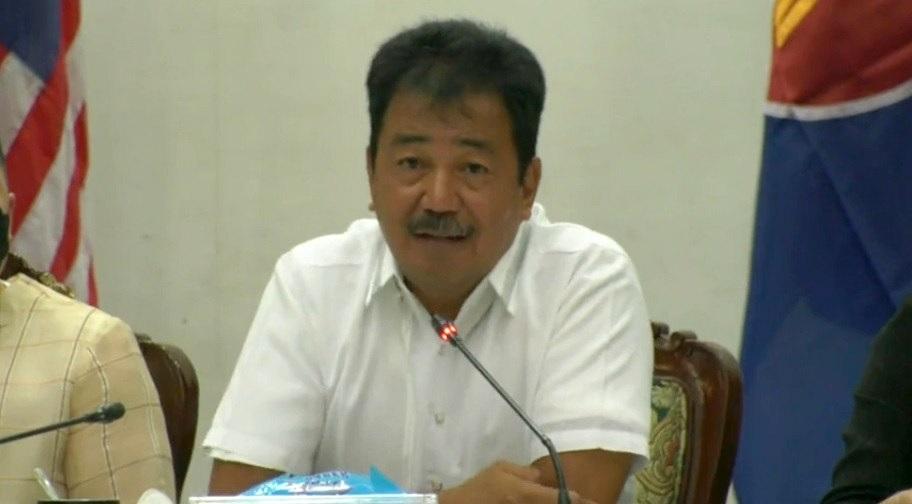CHED: Up to Congress if foreign schools will also enjoy academic freedom
By GISELLE OMBAY, GMA Integrated News Published March 5, 2024 5:07pm It will be up to lawmakers to flesh out the enabling law, whether or not foreign higher institutions will be allowed to enjoy academic freedom in the Philippines should the economic provisions of the 1987 Constitution be amended, the Commission on Higher Education (CHED) […]


By GISELLE OMBAY, GMA Integrated News
It will be up to lawmakers to flesh out the enabling law, whether or not foreign higher institutions will be allowed to enjoy academic freedom in the Philippines should the economic provisions of the 1987 Constitution be amended, the Commission on Higher Education (CHED) said Tuesday.
This came after Senate Deputy Minority Leader Risa Hontiveros, during a hearing of the Senate subcommittee on Constitutional Amendments and Revision of Codes, asked if foreign schools will also be covered by Article 12, Section 5 (2) of the Constitution, which states that all institutions of higher learning in the country shall enjoy academic freedom.
“This includes the right of the school to decide for itself, its aims and objectives, and how best to attain them, free from outside coercion or interference. HEIs determine who may teach, what may be taught, how it shall teach, and who may be admitted to study,” Hontiveros said.
“Tama ba na kung ipasa ang RBH6, maipapasama sa constitutional protection na ito ang mga dayuhang eskwelahan?” She added, referring to Resolution of Both Houses No. 6., which seeks to amend the Constitution by lifting the 40% limit on foreign ownership of vital industries, including education.
(Is it correct that if RBH6 is passed, foreign schools will be included in this constitutional protection?)
In response, CHED chairperson Prospero de Vera III said that the academic freedom concept is a constitutional requirement, therefore it will depend on how Congress will work on the enabling law.
“Of course, we want to make sure that academic freedom as a principle is part and parcel of all academic institutions, but academic freedom is also not absolute. There is jurisprudence determining the limits of academic freedom. So, I think it will be determined if ever the constitutional amendment will happen on how and what kind of law Congress will enact,” De Vera said.
Hontiveros then proceeded to question if foreign private higher educational institutions will be given autonomy to teach as they see fit without CHED’s monitoring and evaluation.
Particularly, the lawmaker asked if Chinese schools will be allowed to teach about its 10-dash line and other beliefs to Filipino learners.
“‘Yung isang Chinese university malayang ituro ‘yung 10-dash line o kung gusto niyang pilosopiya at paniniwala sa kabataang Pilipino? Pwedeng mag-conduct ng research sa West Philippine Sea for ‘academic purposes’ at kung kwestyunin, pwedeng sabihin na nilalabag na ang kanilang academic freedom?” Hontiveros asked.
(Will a Chinese university be allowed to freely teach about the 10-dash line or its own philosophy and beliefs to the Filipino youth? Can they conduct research in the West Philippine Sea for ‘academic purposes’ and if questioned, say that their academic freedom is being violated?)
De Vera explained that in the practice of transnational education in Southeast Asia, the curriculum is still subject to the respective education ministries even if significant autonomy is given to foreign schools.
He also said that there are also limits to how foreign educational institutions can operate, citing the best practices in neighboring countries.
“We can look at their practice, if such a law will be enacted. It will be instructive to see the practices of other countries in the region and learn from it. I don’t know the hard and fast rule that will be applied right now, but there are sufficient lessons from the other countries that Congress can study if or when it wants to enact an enabling law,” the CHED chairperson added.
The CHED earlier expressed support for economic Cha-cha, saying it will provide additional options to students who want to pursue their education in foreign universities, help internationalize higher education, and increase foreign student enrollment in the Philippines.
The Department of Education (DepEd), on the other hand, expressed strong objection to the proposed amendments to the Constitution, particularly the allowing of full control and administration of basic education institutions in the Philippines to foreign entities.
Senator Sonny Angara on Tuesday allayed DepEd’s concerns, saying that the proposed amendments do not intend to open up basic education schools to full foreign ownership.
Angara said that it only intends to liberalize higher educational institutions, as well as technical and vocational schools. — RSJ, GMA Integrated News














